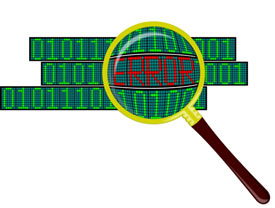 In today’s litigious society, even small businesses need insurance policies to help protect business assets and owners’ personal assets in the event of a lawsuit. While a general commercial liability insurance policy is appropriate for many small businesses, some businesses that offer professional advice, or other knowledge-based services may need errors and omissions insurance coverage.
In today’s litigious society, even small businesses need insurance policies to help protect business assets and owners’ personal assets in the event of a lawsuit. While a general commercial liability insurance policy is appropriate for many small businesses, some businesses that offer professional advice, or other knowledge-based services may need errors and omissions insurance coverage.
Errors and omissions coverage, also known as professional liability insurance, is essentially an insurance policy that provides coverage to insureds from negligence claims. This insurance product will help pay for a legal defense from claims arising from alleged errors and omissions by the policyholder which result in the policyholder failing to perform adequately, or financial losses caused by the policy holder. A commercial general liability policy may not address these claims, as they usually are intended to provide coverage for more direct causes of harm.
The main reason why E&O policies exist is because commerical general liability policies typically only provide coverage for claims arising from bodily injury, property damage or advertising injury. The kind of damages that can arise from professional services and products simply don’t fall under these categories. E&O policies will help shield your business from claims for negligence, bad faith, inaccurate advice or misrepresentation.
A good example of a claim covered under an E&O policy would be a suit involving the failure of accounting software to accurately keep user records. This could easily give rise to a claim of negligence and misrepresentation.
E&O policies usually operate on a claims-made basis. This means that the policy covers only claims that are made during the policy period. Claims made before or after the policy period aren’t covered, unless the policy has a rider providing coverage for claims that may arise during specific times before or after the policy period.
E&O policies do not typically provide coverage for criminal prosecution and exclude various other types of legal liability under civil law, except those that may be written into the policy.
Who should get E&O coverage?
Small businesses need to get E&O coverage if they:
- Provide educated guesses or advice to clients.
- Share their recommendations with other businesses performing work for the client.
- Represent the needs of their client.
- Provide specific services for individual clients customized to their needs.
Here’s a list of some common errors and ommissions policy insureds:
- Attorneys
- Doctors
- Consultants
- Accountants
- Architects
- Real estate agents
- Insurance brokers
- Information technology companies.
The good thing is that errors and omissions insurance premiums are deductible from your income taxes, as they qualify as a business expense.
 Cost of E&O Suits
Cost of E&O Suits
According to the Small Business Administration, litigation can have a major impact on small businesses. The SBA said that most lawsuits involving small businesses have litigation costs alone of between $3,000 and $150,000. About two-thirds of those lawsuits had litigation costs of more than $10,000.
Respondents to the SBA study said litigation creates a substantial hardship on both small business owners and their enterprises, causing severe emotional distress on the part of the business owner, and often resulting in financial burdens for the business as it seeks to recoup the cost of the suit. The survey indicated that even favorable resolved litigation can have a significant impact on businesses, often ending in making small business owners more wary of customers and employees.
Having an error and omissions policy can help insulate small business owners and their businesses from the stresses and pressures of litigation.









